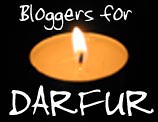Never Again International in London invites you to join us in a conversation, 'Responsibility to Report'. Drawing on the lessons from Rwanda, 12 years ago this year, the debate will focus on current and future reporting of genocide and crimes against humanity. With a view to establishing a set of key recommendations to be put before media organisations, the debate will hear from those directly involved - from grass-roots reporters to editors setting news agendas.
In 2005, a change came that campaigners hoped would help prevent another Rwanda: the Responsibility to Protect. World leaders pledged that the international community, acting through the Security Council "was prepared to take collective action" in a timely and decisive manner" when states are "manifestly failing to protect their populations from genocide, war crimes, ethnic cleansing and crimes against humanity." (1)
Since then, governments and civil society have been furiously debating the meaning ot R2P and its implications.The words have been increasingly used in the press. However, there has so far been little debate on the significance of this change for journalists.
Because something has changed. Extreme violent conflict is no longer simply the businesses of other countries, Britain as a member of the Security Council could, potentially, now be held culpable if it was to repeat its response of 1994 which was to push for the withdrawal of peacekeepers in Rwanda.
So Britain has new responsibilities. But what responsibilities do journalists have? What makes a situation serious enough for a journalist to be able to state quite clearly that this is a situation in which the international community should be responding, not because that is the journalist's view but because our governments have promised to do so.
We will ask you to share your experiences and put forward ideas about our responsibilities as people involved in the media. We define the media in a very inclusive way and hope to hear about new developments that could help, rather than threaten, mainsteam journalists. We hope to build bridges and widen all of our perspecitves on the possibilities for news, on finding more voices and information our thinking on how situations that all of us agree are Very Bad can get attention. We will hear about has changed - or not changed - since she was reporting from Rwanda 12 years ago. We want to talk about the blocks that can mean genocide isn't news, but we also want to come out with positive ideas on how the media can fulfil its responsibility to hold power to account.
This conversation will be taking place in London in late July, bringing together youth, media experts, journalists, editors and grassroots voices. In the run-up to the event, we invite you to collaborate on this issue in our wiki project page.
Subscribe to:
Post Comments (Atom)


No comments:
Post a Comment